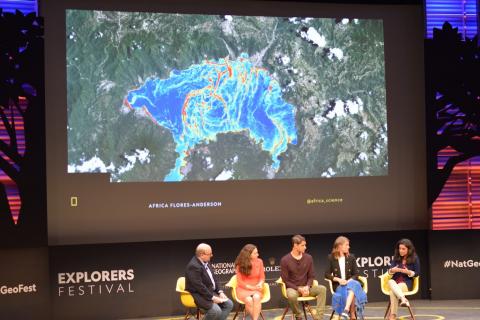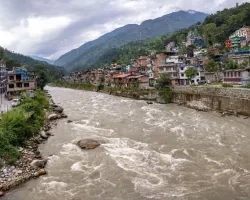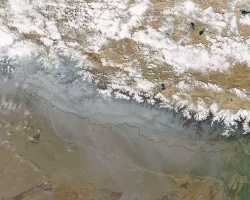Every year, the National Geographic Explorers Festival brings together scientists, educators and storytellers from around the world to discuss their work – and share the ideas and challenges they’ve discovered along the way. Joining a panel on "Data-Driven Conservation," Africa Flores of the Applied Sciences' SERVIR program spoke about how new technologies help governments and humanitarian agencies combat critical threats to our environment and human health. As a National Geographic Explorer, Flores is developing ways to use artificial intelligence to forecast harmful algae blooms in Lake Atitlán, Guatemala.

"This festival gives us a megaphone for the work NASA is doing," Flores said. "And we come away from it with ideas for our current and next projects and connections with other explorers for important collaborations in the future. Above all, it gave us so much inspiration to continue our work.”
National Geographic Society posted the full video of the event; Flores' panel begins at 2:50:00. She discussed how NASA Earth observations are used in partnership with local governments and organizations on the ground to improve decision making. Turnover in local government can be a logistical challenge, Flores said, adding that NASA and USAID’s program, SERVIR, addresses it by partnering with local organizations. Bringing local groups and academic institutions can help with continuing programs before and after election cycles, and empower the next generation of professionals who may take government positions.

"Being on the panel was an amazing opportunity," Flores said. "The other speakers are all doing great work with sensors and tech, so to share experiences was a learning opportunity for all of us as much as the audience."
Flores is the lead of the Land Cover and Land Use Change Thematic Service Area for NASA's SERVIR Science Coordination Office and has taken on a new role as the Amazonia Regional Science Coordination Lead for SERVIR in South America.


